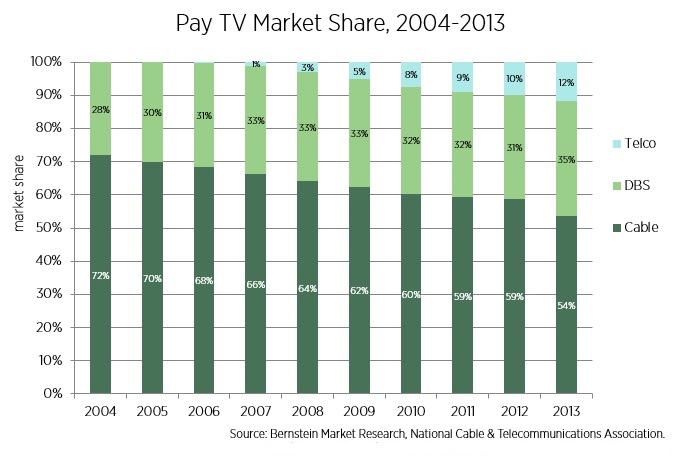The outrage over the FCC’s attempt to write new open Internet rules has caught many by surprise, and probably Chairman Wheeler as well. The rumored possibility of the FCC authorizing broadband “fast lanes” draws most complaints and animus. Gus Hurwitz points out that the FCC’s actions this week have nothing to do with fast lanes and Larry Downes reminds us that this week’s rules don’t authorize anything. There’s a tremendous amount of misinformation because few understand how administrative law works. Yet many net neutrality proponents fear the worst from the proposed rules because Wheeler takes the consensus position that broadband provision is a two-sided market and prioritized traffic could be pro-consumer.
Fast lanes have been permitted by the FCC for years and they can benefit consumers. Some broadband services–like video and voice over Internet protocol (VoIP)–need to be transmitted faster or with better quality than static webpages, email, and file syncs. Don’t take my word for it. The 2010 Open Internet NPRM, which led to the recently struck-down rules, stated,
As rapid innovation in Internet-related services continues, we recognize that there are and will continue to be Internet-Protocol-based offerings (including voice and subscription video services, and certain business services provided to enterprise customers), often provided over the same networks used for broadband Internet access service, that have not been classified by the Commission. We use the term “managed” or “specialized” services to describe these types of offerings. The existence of these services may provide consumer benefits, including greater competition among voice and subscription video providers, and may lead to increased deployment of broadband networks.
I have no special knowledge about what ISPs will or won’t do. I wouldn’t predict in the short term the widespread development of prioritized traffic under even minimal regulation. I think the carriers haven’t looked too closely at additional services because net neutrality regulations have precariously hung over them for a decade. But some of net neutrality proponents’ talking points (like insinuating or predicting ISPs will block political speech they disagree with) are not based in reality.
We run a serious risk of derailing research and development into broadband services if the FCC is cowed by uninformed and extreme net neutrality views. As Adam eloquently said, “Living in constant fear of hypothetical worst-case scenarios — and premising public policy upon them — means that best-case scenarios will never come about.” Many net neutrality proponents would like to smear all priority traffic as unjust and exploitative. This is unfortunate and a bit ironic because one of the most transformative communications developments, cable VoIP, is a prioritized IP service.
There are other IP services that are only economically feasible if jitter, latency, and slow speed are minimized. Prioritized traffic takes several forms, but it could enhance these services:
VoIP. This prioritized service has actually been around for several years and has completely revolutionized the phone industry. Something unthinkable for decades–facilities-based local telephone service–became commonplace in the last few years and undermined much of the careful industrial planning in the 1996 Telecom Act. If you subscribe to voice service from your cable provider, you are benefiting from fast lane treatment. Your “phone” service is carried over your broadband cable, segregated from your television and Internet streams. Smaller ISPs could conceivably make their phone service more attractive by pairing up with a Skype- or Vonage-type voice provider, and there are other possibilities that make local phone service more competitive.
Cloud-hosted virtual desktops. This is not a new idea, but it’s possible to have most or all of your computing done in a secure cloud, not on your PC, via a prioritized data stream. With a virtual desktop, your laptop or desktop PC functions mainly as a dumb portal. No more annoying software updates. Fewer security risks. IT and security departments everywhere would rejoice. Google Chromebooks are a stripped-down version of this but truly functional virtual desktops would be valued by corporations, reporters, or government agencies that don’t want sensitive data saved on a bunch of laptops in their organization that they can’t constantly monitor. Virtual desktops could also transform the device market, putting the focus on a great cloud and (priority) broadband service and less on the power and speed of the device. Unfortunately, at present, virtual desktops are not in widespread use because even small lag frustrates users.
TV. The future of TV is IP-based and the distinction between “TV” and “the Internet” is increasingly blurring, with Netflix leading the way. In a fast lane future, you could imagine ISPs launching pared-down TV bundles–say, Netflix, HBO Go, and some sports channels–over a broadband connection. Most ISPs wouldn’t do it, but an over-the-top package might interest smaller ISPs who find acquiring TV content and bundling their own cable packages time-consuming and expensive.
Gaming. Computer gamers hate jitter and latency. (My experience with a roommate who had unprintable outbursts when Diablo III or World of Warcraft lagged is not uncommon.) Game lag means you die quite frequently because of your data connection and this depresses your interest in a game. There might be gaming companies out there who would like to partner with ISPs and other network operators to ensure smooth gameplay. Priority gaming services could also lead the way to more realistic, beautiful, and graphics-intensive games.
Teleconferencing, telemedicine, teleteaching, etc. Any real-time, video-based service could reach critical mass of subscribers and become economical with priority treatment. Any lag absolutely kills consumer interest in these video-based applications. By favoring applications like telemedicine, providing remote services could become attractive to enough people for ISPS to offer stand-alone broadband products.
This is just a sampling of the possible consumer benefits of pay-for-priority IP services we possibly sacrifice in the name of strict neutrality enforcement. There are other services we can’t even conceive of yet that will never develop. Generally, net neutrality proponents don’t admit these possible benefits and are trying to poison the well against all priority deals, including many of these services.
Most troubling, net neutrality turns the regulatory process on its head. Rather than identify a market failure and then take steps to correct the failure, the FCC may prevent commercial agreements that would be unobjectionable in nearly any other industry. The FCC has many experts who are familiar with the possible benefits of broadband fast lanes, which is why the FCC has consistently blessed priority treatment in some circumstances.
Unfortunately, the orchestrated reaction in recent weeks might leave us with onerous rules, delaying or making impossible new broadband services. Hopefully, in the ensuing months, reason wins out and FCC staff are persuaded by competitive analysis and possible innovations, not t-shirt slogans.


 There are few things more likely to get constituents to call their representative than TV programming blackouts, and the increase in broadcasting disruptions arising from licensing disputes in recent years means Congress may be forced to once again fix television and copyright laws. As
There are few things more likely to get constituents to call their representative than TV programming blackouts, and the increase in broadcasting disruptions arising from licensing disputes in recent years means Congress may be forced to once again fix television and copyright laws. As 
 The Technology Liberation Front is the tech policy blog dedicated to keeping politicians' hands off the 'net and everything else related to technology.
The Technology Liberation Front is the tech policy blog dedicated to keeping politicians' hands off the 'net and everything else related to technology.